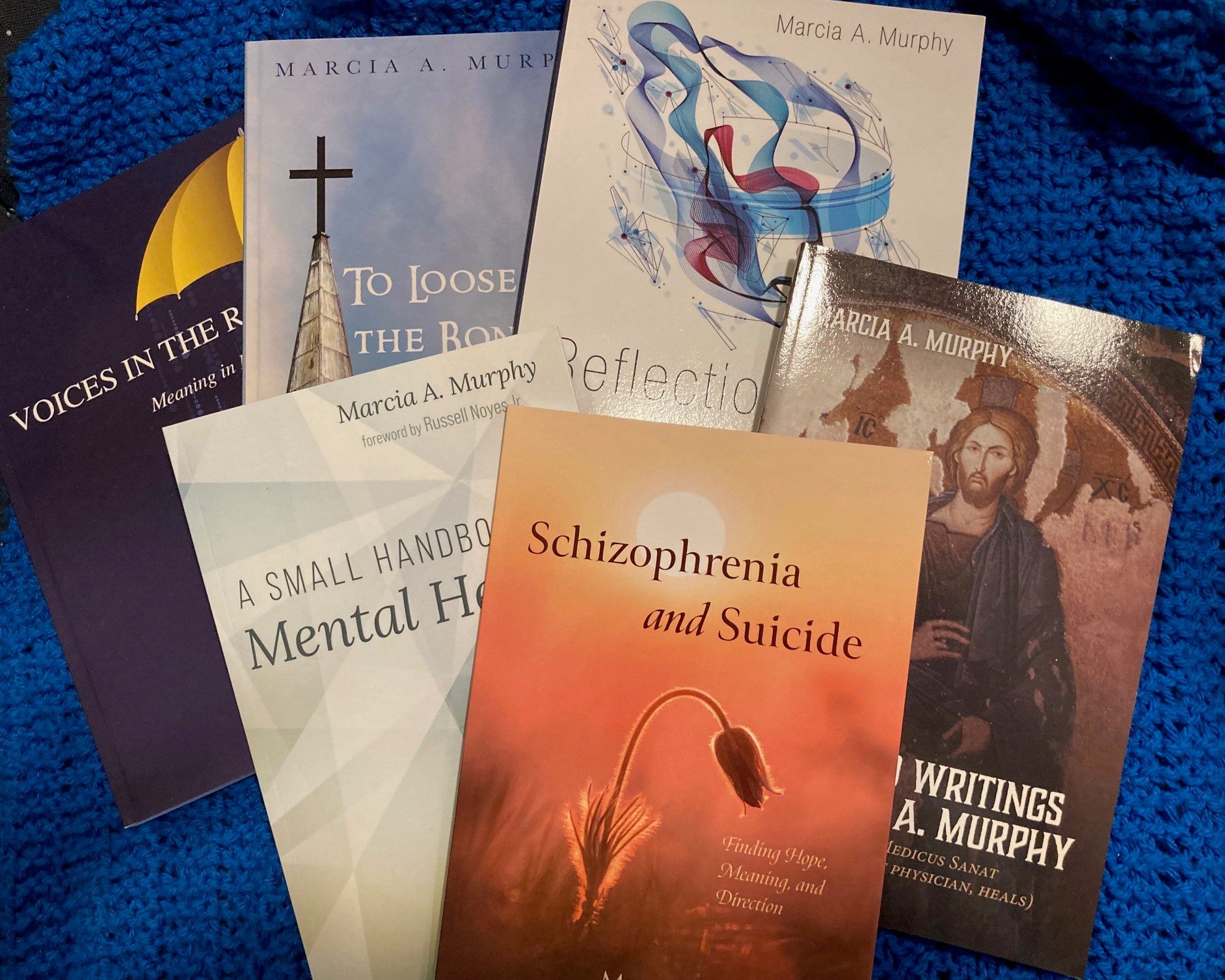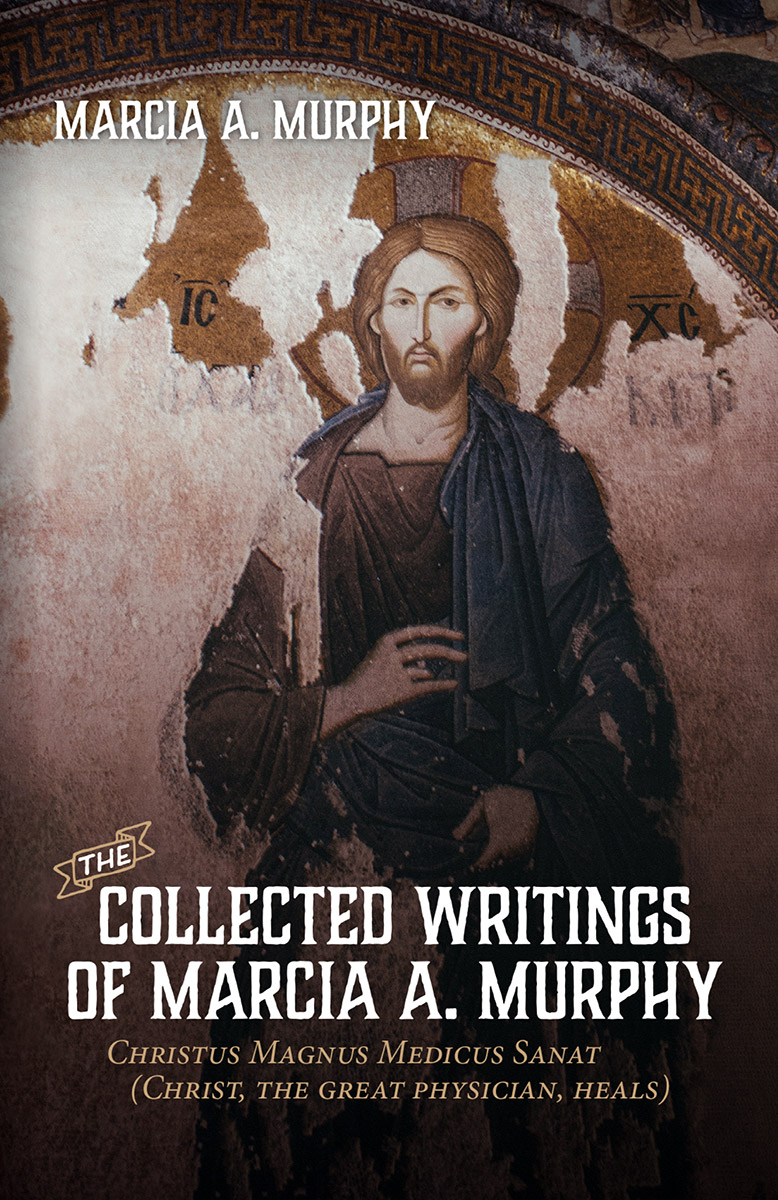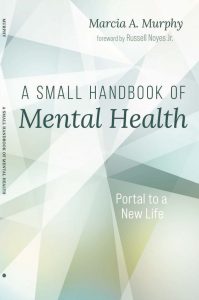
Group for the Advancement of Mental Health (GAMH)
founded by Marcia A. Murphy- March 17, 2024
A Mental Health Initiative
Mission Statement
Promotes the dignity, value, and inherent worth of people who live with mental illness. To advocate through educational means, as well as provide practical, psychological, and social support for the mentally ill, the most neglected and marginalized members of society. GAMH, MHI, is a strong advocate for people – either abled or disabled. It works at identifying and promoting the role of hope and health in improving relationships in family, in society, in self-care, and in wellness. There are numerous initiatives created by MHI which focus on this mission.
During my early teen years I developed a mental illness. Since then my life has taken many turns, some towards recovery. I have written about my experiences so that the lives of others who have a mental illness might be improved. I hope that my insights will stimulate new thought concerning the meaning in psychoses, the forces of stigmatization, and the search for survival. My experiences and perspectives have implications not only for the psychiatrically disabled, but also for those who support the ill: their families, therapists, and physicians.
pax vobis
Marcia A. Murphy

Part I: An Integrated Approach
The resources in this section are evidence and support for an integrated approach to psychiatric care in treating the body, mind, and spirit. Through my writing I explain how spirituality, alongside of biology and other factors, is an integral part of recovery and is essential for healing the emotional, psychological, and physical suffering inherent in illness. Research has shown that spirituality in particular or, religious faith, play an important role in the recovery process. Marcia A. Murphy
“I agree with you that God is using your writing to help integrate faith in the mental health field (a long time secular institution).”
Shem Biebert, LPC
Licensed Professional Counselor
Christian Family Solutions, Counseling Care & Services
Milwaukee, WI
Resources on Spirituality and Health: Compiled by Marcia A. Murphy, September 2009 (PDF). These resources consisting of articles and websites provide evidence and support for an integrated approach in mental health care in treating the body, mind, and spirit. Research has shown that spirituality in particular or, religious faith, play an important role in the recovery process. This list can be a starting place for health care providers or anyone interested in this topic. A brief summary of the resource will precede each reference.
“Until mental and physical health care are on par with one another, there is much educating to be done. Thanks for all you do.”
Toni Van Voorhis, architect
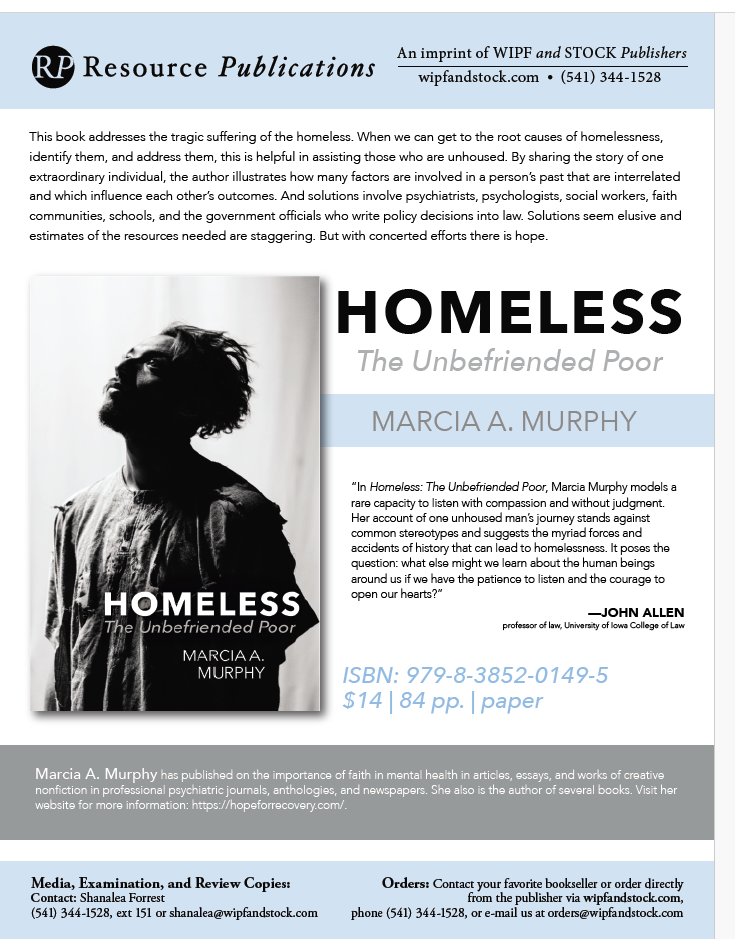

Marcia A. Murphy, author, mental health advocate, age 70 (2024)
In Homeless: The Unbefriended Poor, Marcia Murphy models a rare capacity to listen with compassion and without judgment. Her account of one unhoused man’s journey stands against common stereotypes and suggests the myriad forces and accidents of history that can lead to homelessness. It poses the question: what else might we learn about the human beings around us if we have the patience to listen, and the courage to open our hearts?
John Allen, Herschel G. Langdon Clinical Professor of Law, University of Iowa College of Law
Thank you . . . the book is really important. Thank you for addressing a serious issue by having conversations with the people impacted.
Anne Mangano, Collection Services Coordinator
Iowa City Public Library
Please consider supporting a much neglected and marginalized segment of our society whose voices often go unheard.
Purchase HERE
Video summary HERE
Book summary page HERE
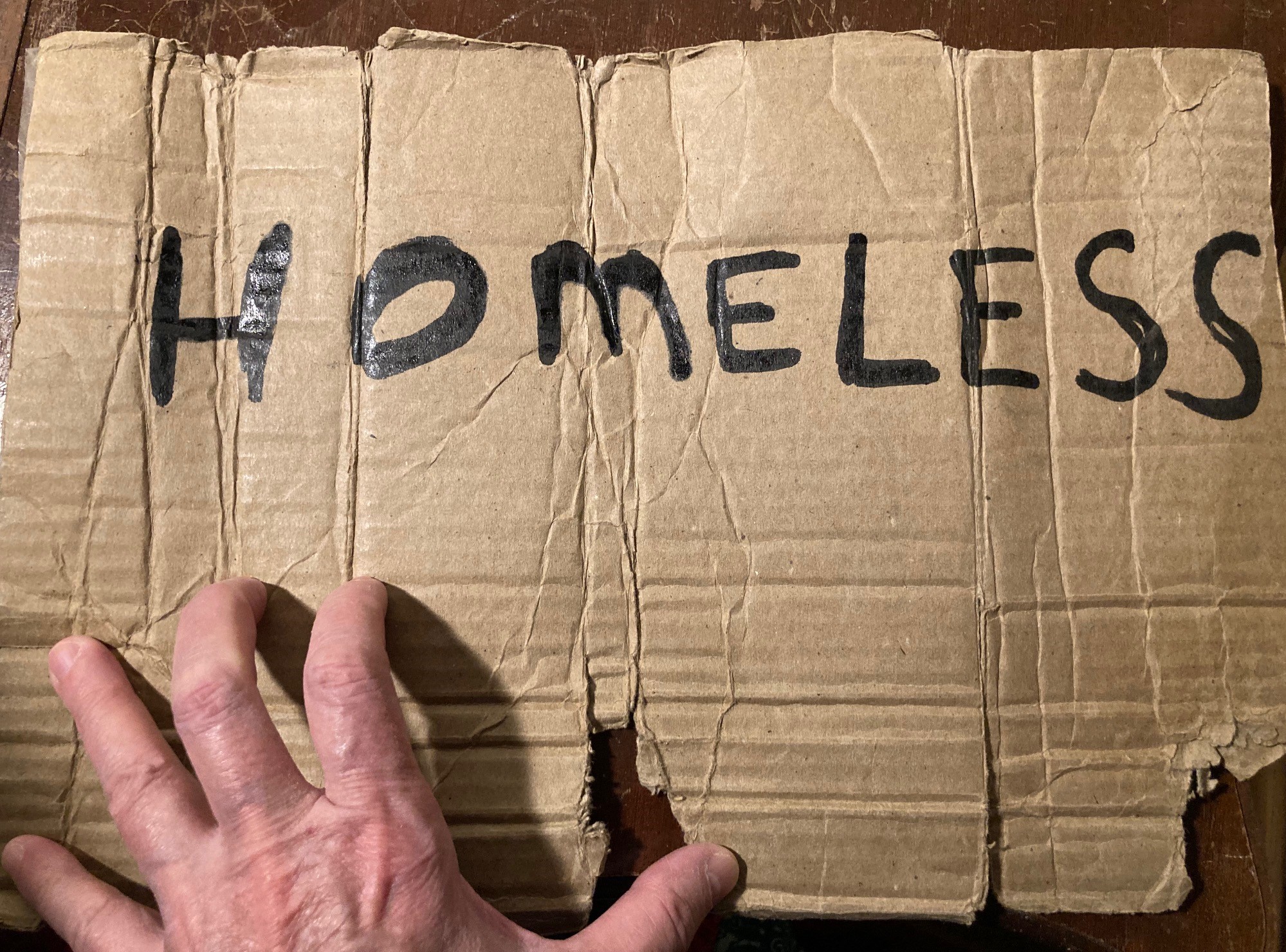
UIHC Apparel Fund for Psychiatric In-patients
(Clothing Outreach Program)
Established in 2019 by MHI
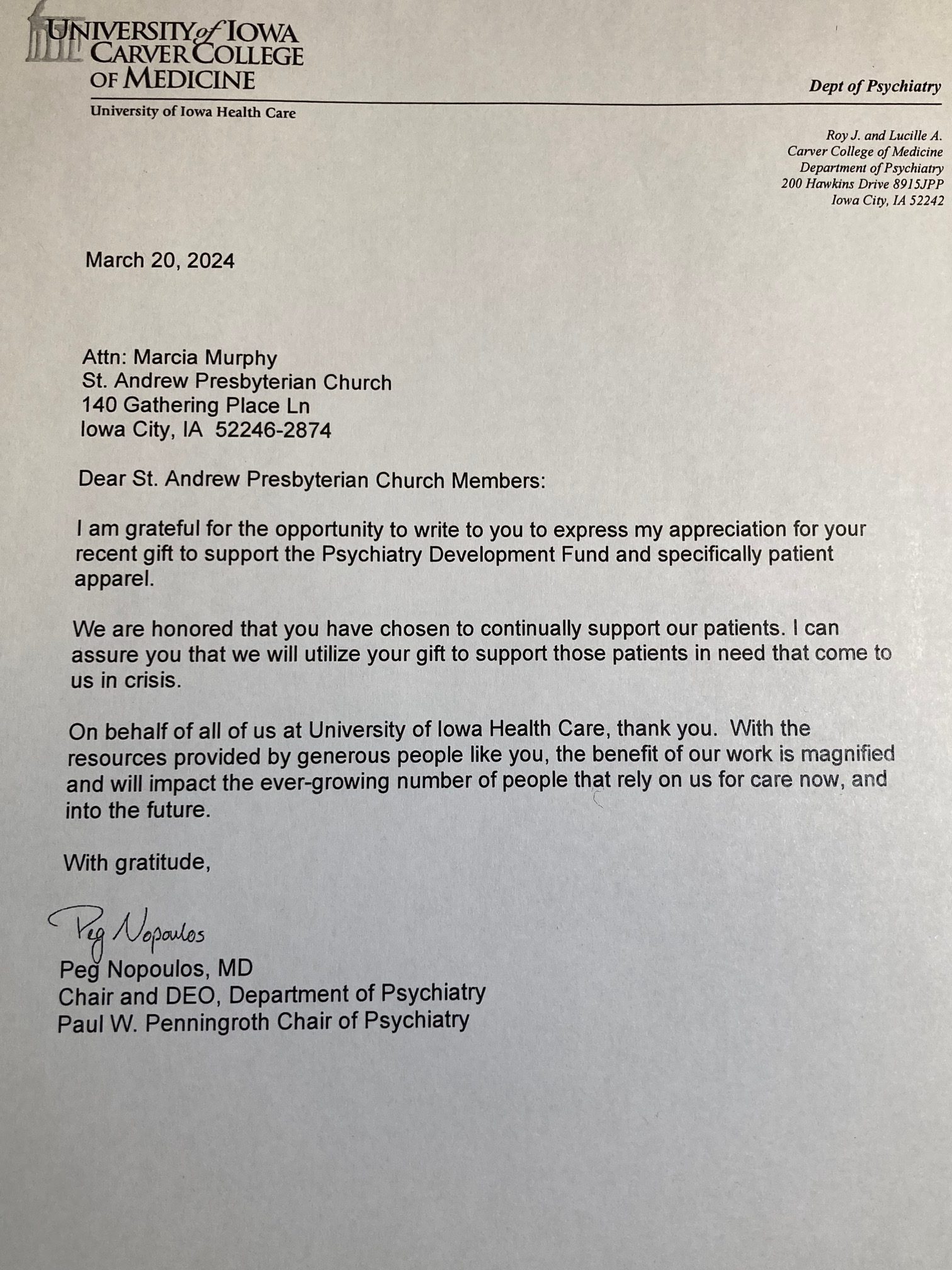
Video featuring UI Psychiatrist
Dr. Tom Wassink VIDEO HERE
Learn More HERE and how to donate
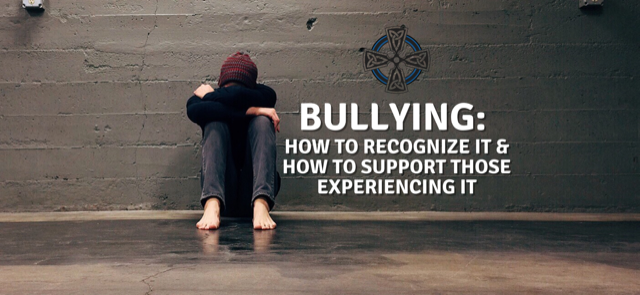
St. Andrew Presbyterian Church, Iowa City, hosted an online conversation on “Bullying: How to Recognize It, and How to Support Those Experiencing It.” The main speaker was Dr. Jamie Elizalde of the University of Iowa Department of Psychology and Psychiatry. The event was co-sponsored by St. Andrew’s Access & Inclusive Mission; Mental Health Initiatives; and Mission, Outreach, and Service Team.
For webpage with video (including YouTube URL) and list of additional resources: Here
Book Reading
November 15, 2020, Zion Lutheran Church, Iowa City, hosted a book reading given by Marcia A. Murphy. Click on: Book Reading Collected Writings
Video
Marcia’s YouTube Channel: Spirituality & Mental Health
https://www.youtube.com/channel/UC5DgDRREvAc1Dj2x1lFUWdQ
Marcia’s SlideShare:
Breathing Life Into Dust https://www.slideshare.net/yellow37/from-dust
From Death to Life: My Life Story https://www.slideshare.net/yellow37/life-storyrf
Books
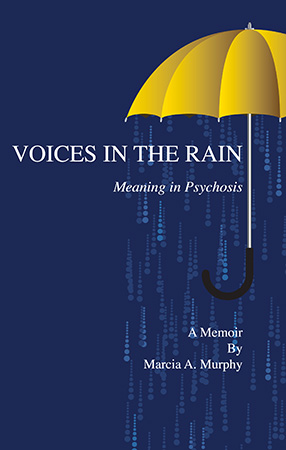 Allbooks Review International Editor’s Choice Award for 2011 Finalist
Allbooks Review International Editor’s Choice Award for 2011 Finalist
My memoir, Voices in the Rain: Meaning in Psychosis, is the story of my experience with mental illness through which I find spiritual meaning and, ultimately, God. As a person who has experienced severe psychiatric illness and landed on my feet, I believe I offer a unique first-person perspective. I tell what such illness is like, its symptoms, stigmatization, hospitalizations, and daily life. I take you into my world where I found insights into the spiritual meaning of my illness. My story may give desperately needed hope to others who are ill, their families, psychiatric professionals, as well as to those who know someone who is ill.
Available from:
Wipf & Stock Publishers
To Order:
Click here to order from Wipf & Stock Publishers
Wipf & Stock, Resource Publications, imprint. Published 12/07/2021
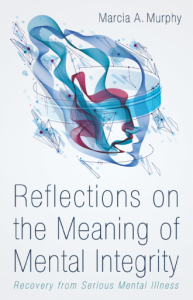
Author’s Video
Reflections on the Meaning of Mental Integrity
Recovery from Serious Mental Illness
by Marcia A. Murphy
In the midst of devastating mental illness, the author hears from God. Her resulting faith points her towards recovery. She tells us what steps she took, and that others must take, to achieve mental health. Hers is a unique and powerful voice. Patients and doctors both should listen.
—Russell Noyes Jr., MD, Emeritus Professor, Psychiatry Department, Carver College of Medicine, University of Iowa
In an impactful narrative, Marcia Murphy writes with the raw, first-person discernment of someone recovering from serious mental illness. Her prose highlights the interacting forces influencing mental health -– physical, psychological, social, and faith-based. Her courage in describing her own recovery and the importance of human interaction, community, prayer, and the arts can provide examples for health care workers and religious communities looking to serve alongside those striving to recover from mental illness.
—Cecilia M. Redmond Norris, MD Summary Here Purchase Here
Marcia Murphy’s book To Loose the Bonds of Injustice is a must-read for anyone working with the mentally ill. Combining memoir and a scholarly review of history, this book reflects the author’s spiritual and psychological journey in life. Policy analysts, religious leaders, and mental health professionals all can learn to do a better job helping those in need by reading this book.
—Scott Temple, PhD, University of Iowa Carver College of Medicine
To Loose the Bonds of Injustice
The Plight of the Mentally Ill & What the Church Can Do
By Marcia A. Murphy
Abstract Here
Wipf & Stock Publishers, Resource Publications, Imprint 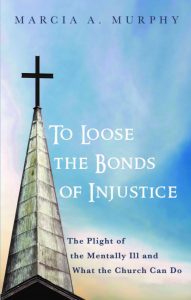
To Order Now Click Here
From Wipf & Stock Publishers
Resource Publications March 2020
The Collected Writings of Marcia A. Murphy
Christus Magnus Medicus Sanat
(Christ, the Great Physician, Heals)
By Marcia A. Murphy
Summary Click Here
Purchase Here
“Hers is a rare and powerful voice, one worth listening to.”
Russell Noyes Jr., MD, Professor Emeritus, Psychiatry Department, Carver College of Medicine, University of Iowa
Key Strengths of Book:
- Those who know persons with psychiatric disorders will gain appreciation of what recovery means and how it may be achieved.
- This is written by someone who has experienced mental illness who, therefore, can tell what the illness is like, providing insight for those who are ill or who provide care for people like herself.
- With the epidemic of opioid abuse and suicides by overdoses, this book offers much needed hope to those who are suffering or experience a lack of meaning in their lives.
A Small Handbook
of Mental Health: Portal to a New Life
by Marcia A. Murphy
Foreword by Russell Noyes Jr., MD
Summary Here
Resource Publications, Wipf & Stock Publishers
ORDER HERE
Wipf & Stock Publishers
Resources Publications, imprint
Schizophrenia & Suicide: Finding Hope, Meaning, and Direction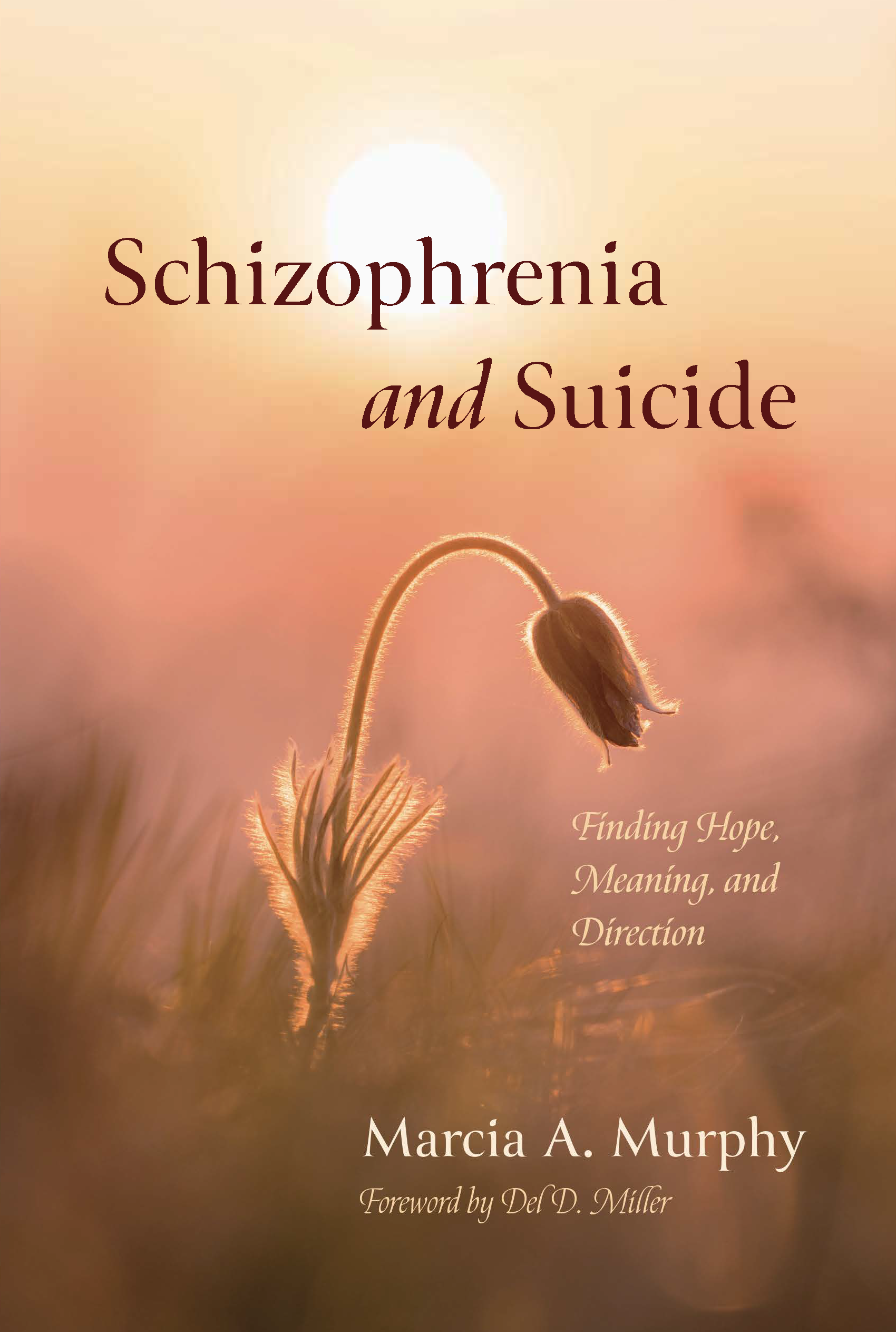
By Marcia A. Murphy
Foreword by Del D. Miller, PharmD, MD, University of Iowa Carver College of Medicine, Iowa City
purchase here
Summary
Video on Marcia A. Murphy’s new book: Schizophrenia & Suicide: Finding Hope, Meaning, and Direction HERE
New book In Press
The Compassionate Psychiatrist:
 Redefining Mental Healthcare
Redefining Mental Healthcare
by Marcia A. Murphy
Summary HERE
Preview Video HERE
Articles
Grand Rounds, Schizophrenia Bulletin by Marcia A. Murphy (internet advance access May 4, 2006), Vol. 33, No. 3, 657-660 (2007). This short story is a work of creative nonfiction and is based on real events from my life. Dr. Gingerich (a pseudonym), my psychiatrist, put on a Grand Rounds on the topic of recovery from schizophrenia. During the Rounds, I am interviewed and I talk to an audience of mainly psychiatric professionals, i.e., medical students, psychiatric residents and psychiatrists. I give my view of my experience of schizophrenia and what I believe brought about recovery.
First Person Account: Meaning of Psychoses, Schizophrenia Bulletin, by Marcia A. Murphy Vol. 23, No. 3, 541-543 (1997). In First Person Account: Meaning of Psychoses, I address the scientific community. I encourage mental health professionals to go beyond the biomedical model of brain dysfunction to consider the devastating impact of psychosis. I describe the psychotic symptoms I experienced as a young adult, problems I’ve had over the years, and factors that led to improvement in my condition.
[Coping With] The Spiritual Meaning of Psychosis, Psychiatric Rehabilitation Journal, by Marcia A. Murphy Vol. 24, No. 2, 179-183 (2000). In [Coping With] The Spiritual Meaning of Psychosis, I present a thematic analysis of the meaning of psychosis. This is based on interviews I conducted on individuals who were taking part in a rehabilitation program. In this article, I ask the psychiatric community to consider these persons’ interpretations of psychotic phenomena. And I urge counselors, therapists, and doctors to recognize how spiritual attitudes and lifestyles give direction and meaning to the lives of those with psychiatric disabilities.
The author wishes to thank Russell Noyes Jr, MD, for his editorial assistance with this article.
Rejection, Stigma, and Hope, Psychiatric Rehabilitation Journal, by Marcia A. Murphy Vol. 22, No. 2, 191-194 (1998). Next, Rejection, Stigma, and Hope describes the pain caused by stigmatization of the mentally ill. I share my own experience of stigma as well as the experiences of those at the rehabilitation center where I conducted interviews. I also give examples of discrimination and prejudice. To conclude the article, I tell of how I found hope in the face of rejection, and how I believe mental health professionals and organizations can restore dignity to the lives of those with psychiatric illness.
Psychiatric Illness from the Religious Perspective. Unpublished manuscript (1997). by Marcia A. Murphy Psychiatric Illness from the Religious Perspective was written with the intention of promoting spirituality in medicine. Using a combination of personal account and theory, I describe the transformative impact of psychosis. Standing alone, I feel the biomedical model of psychiatric illness is reductionistic. Instead, I believe a holistic view of mental illness is needed that merges secular psychiatry and religion. This validates the interconnectedness of body, mind, and spirit. I describe how adopting this perspective brought healing to my life.
Before I Started to Serve. In Sharon Kutz-Mellem (Ed.), DIFFERENT MEMBERS ONE BODY: Welcoming the Diversity of Abilities in God’s Family (pp. 27-28). Louisville, KY: Witherspoon Press (1998). by Marcia A. Murphy Before I Started to Serve is an essay published by the Presbyterian Church, (U.S.A.). In this one I state what any psychiatrist will tell you that schizophrenia does not involve split or multiple personalities. This misconception has been fueled by the media and Hollywood. I explain that schizophrenia is a term that covers many kinds of symptoms such as, thought disorder, hallucinations (auditory or visual), delusions, apathy, and withdrawal. A person can have some or all of these and individual cases vary enormously. This essay also provides examples of activities I undertook in the church which led to fellowship and a sense of well being. By involving myself in the religious community, I found that the love of Christ–through the Christian people–counteracts stigmatization that often breaks the heart and crushes the spirit of those with psychiatric disabilities.
Part II: “Come now, let us reason together…” Isaiah 1:18a
In this section I hope to encourage rational thought and discussion about controversial topics with the hope that such reasoning and communications will result in greater understanding.
Christian Apologetics and Postmodernism: A Rebuttal (2009). By Marcia A. Murphy. With this paper I hope to clarify various theological and philosophical positions that divide religious communities. Opposing camps often sit side by side on church pews. When we say we worship God what exactly is the focus of our worship? Can it matter to God as to who or what we think He is? Should it matter to us? This composition is just a brief preliminary sketch of a more complicated debate that I may develop elsewhere.
Reflections (2013). By Marcia A. Murphy. What is the church? Who are God’s people? This essay contains my reflections upon the apathetic condition of many who profess Christ. What does the Bible show God to be in regard to the afflicted, poor and oppressed? And, is the Christian community reflecting this God of the Bible and the example of Jesus Christ?
Letter to My Therapist (2013). By Marcia A. Murphy. Originally written because of a request from a person putting on a graduate school symposium on the topic of suicide, I wrote this letter to show the depths of problems that may compel a person toward suicidal thoughts and actions. These thoughts are my own, taken from my own experience. The answer from the therapist is authentic—my own therapist responded.
Eugenics & People with Disabilities: The Roots of Societal Rejection, Neglect and Indifference (2013). By Marcia A. Murphy. Who can decide who is worthy of life or death? How do we judge a human being’s worth? How do we treat those that society sees as weak and dependent? What is the Christian response? What is yours?
Having Tea With Anne Hutchinson: Justice, Four Centuries Later (2017) by Marcia A. Murphy. In this work of creative nonfiction I share my views on this controversial figure whom I claim got a bad rap several centuries ago and which continues in modern-day scholarship.
Controversial Topics:
Pluralism; LGBTQ; Tradition/Dogma; Why Jesus was baptised;
Jesus as God and as human learning obedience: meaning of “perfection;”
God’s identity regarding the question of gender.

Guest Post
Source: Reasonable Faith
Recommended Reading
GREED: A Treatise in Two Essays by Julian Edney
Greed (or avarice) is an insatiable desire for material gain (be it food, money, land, or animate/inanimate possessions) or social value, such as status, or power.
(Wikipedia)
The Meaning of Protestant Theology
Luther, Augustine, and the Gospel That Gives Us Christ
By Phillip Cary, PhD
“The beauty and elegance of the writing, itself, is remarkable.”
Marcia A. Murphy
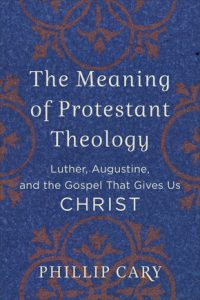
Author G.K. Beale, PhD, in his book, We Become What We Worship: a biblical theology of idolatry,
describes how we take on the characteristics of what we are most devoted to or worship.
It is what we value the most that shapes our lives and loves, be it God or the dark side, good or evil.
Our habits, our lifestyles, our priorities: do they point to God or another way?

